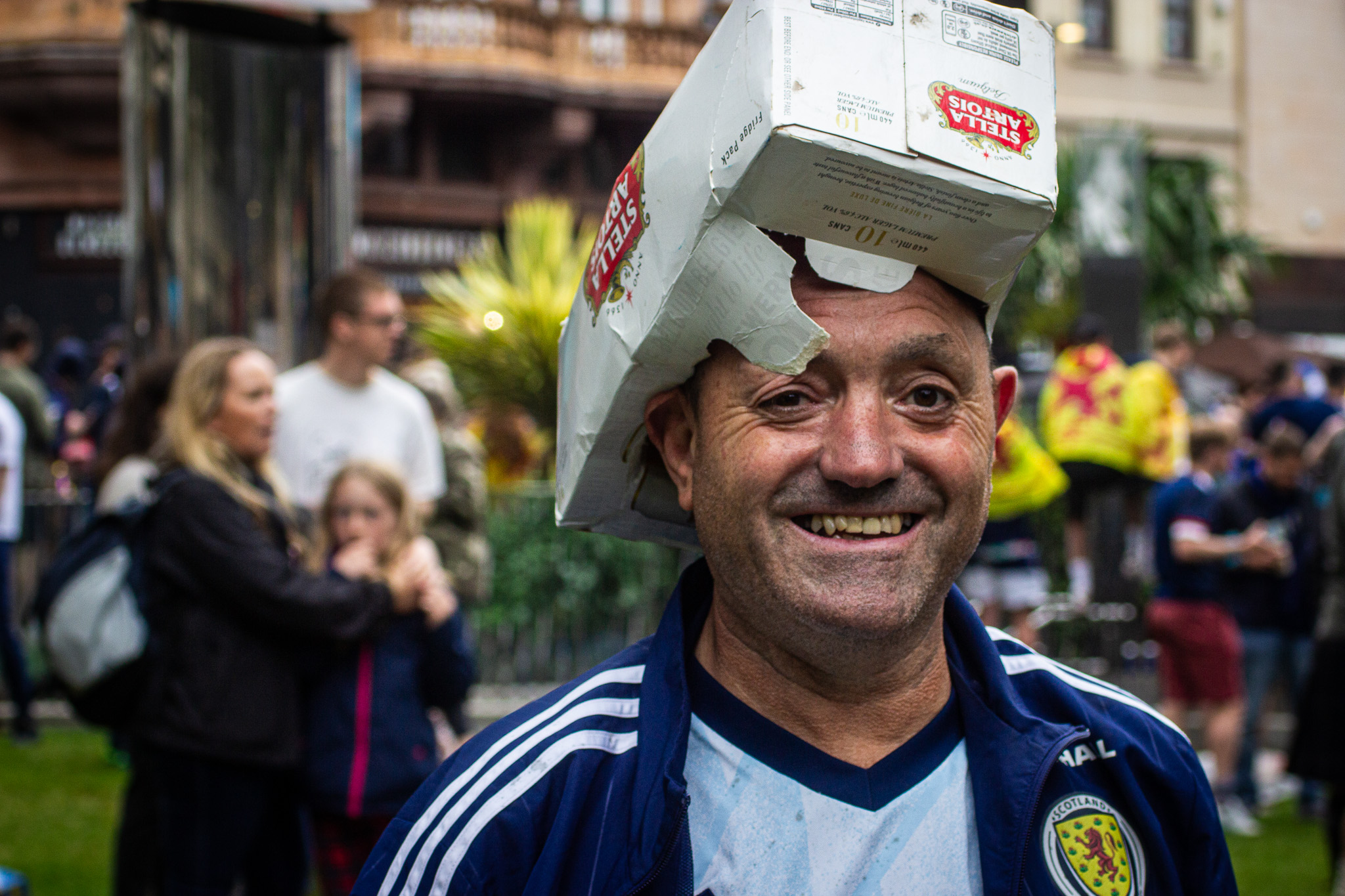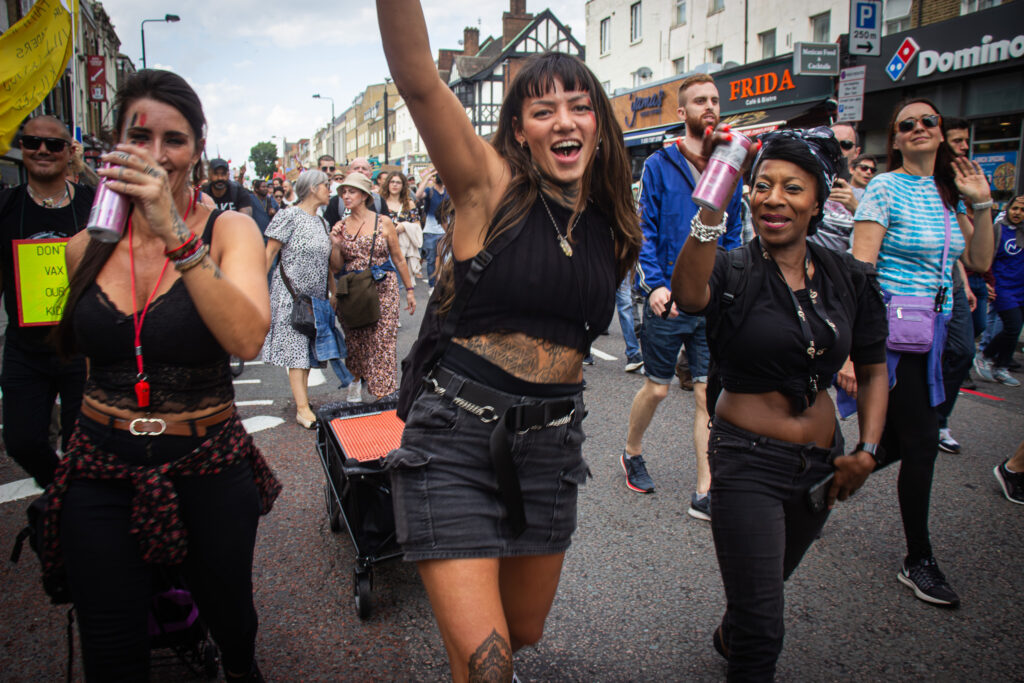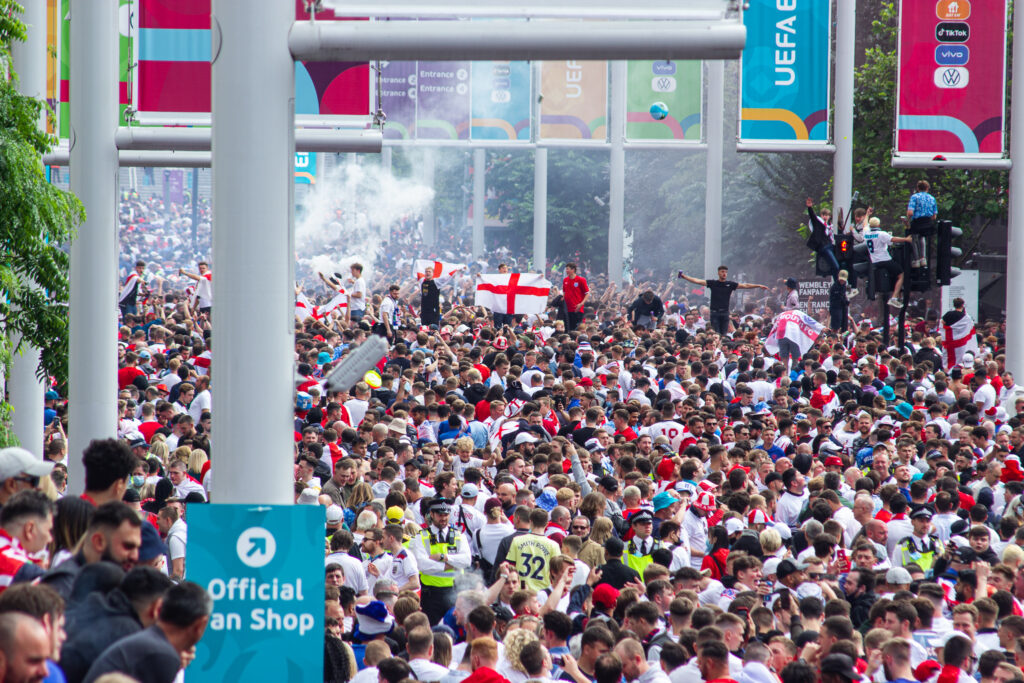
EURO 2020—What on earth was that?
The world was a very strange place back then/
It was in 2021 when the last European Championship took place. Since the football tournament was cancelled a year earlier due to COVID, EURO 2020 was played in 2021. It was still called EURO 2020, regardless — because of sponsors, of course. The merchandise had already been prepared, the logos engraved, and the TV rights reserved. They couldn’t just bin the old ‘2020’ shirts and print the fresh ‘2021’ ones. Instead, in the year of our Lord Jesus Christ 2021, they convinced us we were watching EURO 2020. But we tolerated way stranger shit those days, so nobody was really distracted by the name of the football tournament.
In my memory, 2021 will stay remembered as a year of anti-lockdown protests. I had never been big on demonstrations, but those days public gatherings were prohibited, which is the main reason I made sure I was there. Sometimes I felt like a democrat who was exercising his democratic right to protests, sometimes I felt like an anarchist who disobeyed the rules placed by the corrupted government, but in all fairness I was just a bloody freelance journalist seeking a story. And I’ll tell you what — when you have thousands of people gathering in the centre of London when they are not allowed to — that is one hell of a story. I don’t know what moral or ethical values stopped other media representatives from covering those protests, but I was never going to miss the party.

Those were the times when countries were listed in categories — red, amber and green. Flying abroad was a thing of an utmost unpredictably. You could only enter the ‘green’ countries with a high vaccination rate, or, perhaps, a negative PCR test would get you into the ‘amber’ countries, while a proof of vaccination would be enough to avoid time in quarantine. Or something like that, anyways. I can’t remember the details, but it was a lot. Different countries had different rules. Those were the days of the great division. The vaccinated ones on one side, the unvaccinated ones on the other. Two colons, two sets of rules, two judgements. The wall in between them was built high. If that sounds to you like an apartheid, your mind sees patterns many couldn’t see back then.
As if the situation was not funky enough, some decade before, Michel Platini, then UEFA president, decided EURO 2020 would be played across eleven European cities, from Baku to Dublin, from Bilbao to Saint Petersburg. Yes, indeed, Russia was one of the host-countries. In fact, only London hosted more matches than Saint Petersburg — that mighty city where Dostoevsky’s Raskolnikov was trying to figure out if a crime can ever be justified.
We were told back then the sooner we all got vaccinated, the sooner we would have returned to the old normal. But it took only a single match in Budapest to debunk that statement as a lie. The stadium for the match between Hungary and Portugal was full to the last seat, and from what we could hear on the news, Hungarians were not too prone to vaccination. So how come they had the old normal in place?
It was who else but Cristiano Ronaldo himself, who shook the very foundations of the tournament. At the press conference before the match in Budapest, he removed two bottles of Coca-Cola, picked up a bottle of water and triumphantly said: “Água!” The healthy man showed that he became bigger than the very system that had made him. As a young man, he was making advertisements with Coca-Cola and other junk-food brands, but by 2021 he was self-contained and big enough to fight for the cause he believed in. Or perhaps he simply wanted a new deal with a brand of water?
The final of the tournament was supposed to take place at Wembley in London. However, after Boris Johnson decided to keep the COVID restrictions until after the euros, which meant all the guests needed to go to quarantine upon arrival in England — including UEFA representatives, sponsors and TV broadcasters — UEFA got upset and threatened the final might had been moved to Hungary. Boris quickly allowed 2500 VIP guests to come without self-isolation. It was on that day that we learnt there was a third category, after all — the exempt ones. They weren’t categorised as vaccinated or non-vaccinated. They were different. They were VIP.
The final match of EURO 2020 between England and Italy was staged at Wembley. To make it happen, the government also made sure the initial permitted Wembley capacity from the group stage of 25% increases to 75% or, speaking in numbers, 67.000 people. That meant there were 23.000 empty seats at the grand stadium.
I spent the day outside the stadium where hundreds of thousands of hyped Englishmen were drinking from the very early morning. Officially, lockdown was still on and, according to the rules, the gatherings of more than 30 people in open space were prohibited. Fans came from all over the country. Most of them didn’t have tickets. They were party-hungry. They were crazy. They were insane. They were mad. They were drunk. They were drugged. They were in hundreds of thousands. Blood was everywhere. Broken glass and cut skin. They were frustrated. They were pissed. They were vengeful. They spent more than a year self-isolating in their houses. They were ready for it. And they knew there were 23.000 empty seats at Wembley.

By the time the match started, Wembley was pretty packed. Thousands of fans managed to break the barriers and storm into the stadium without tickets, causing one of the biggest security breaches in the modern era of English football. As England and Italy went all the way to the penalty shootout to decide the winner, thousands were still outside Wembley, waiting for the opportunity to break into the stadium. A head of security was praying to the heavens England players would miss a penalty or two, so the drunk herd go home. His askings were answered — Marcus Rashford, Jadon Sancho and Bukayo Saka, three black players, missed penalties which lead to the infamous upheaval of racism in the days that followed.
It was just another reminder of how tough the life of a migrant can be. Three years later, by the time EURO 2024 kicks off in Germany, immigrants in Europe will have faced the most difficult period yet. The far-right is on the dramatic rise.
